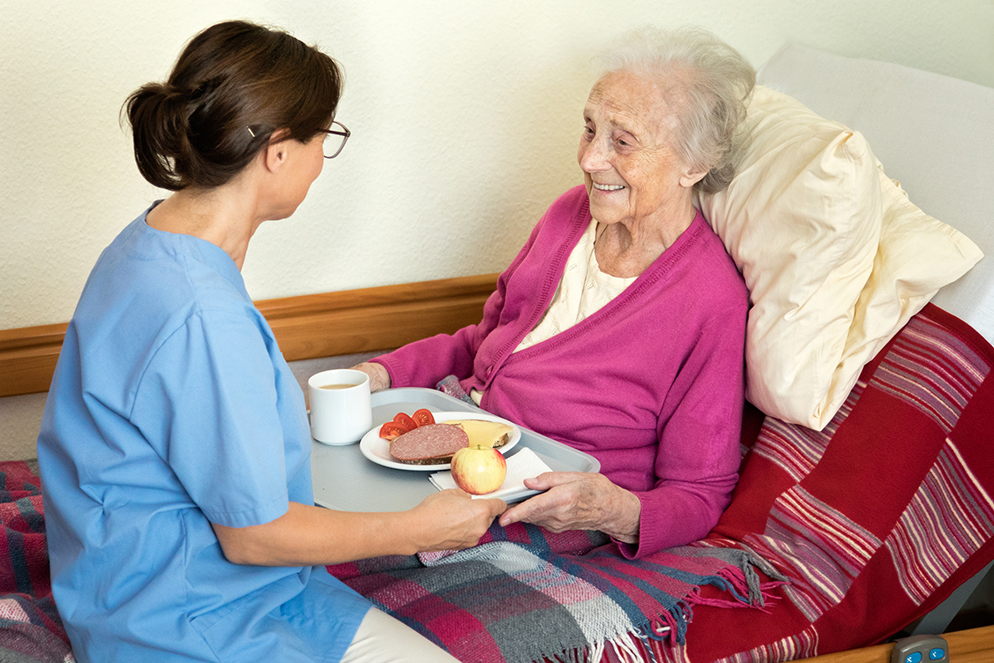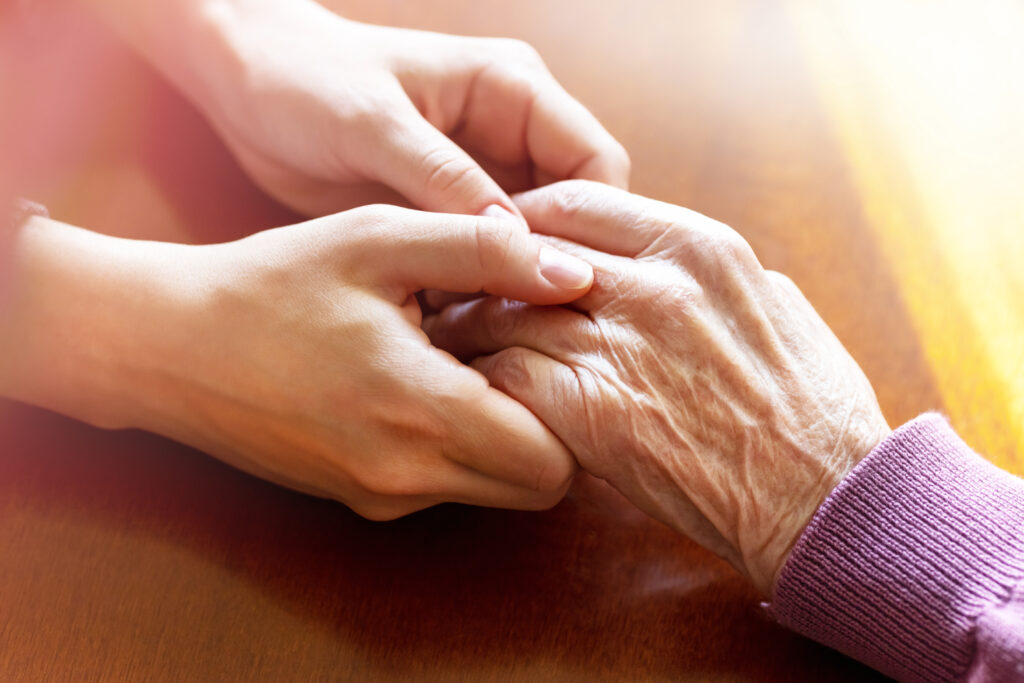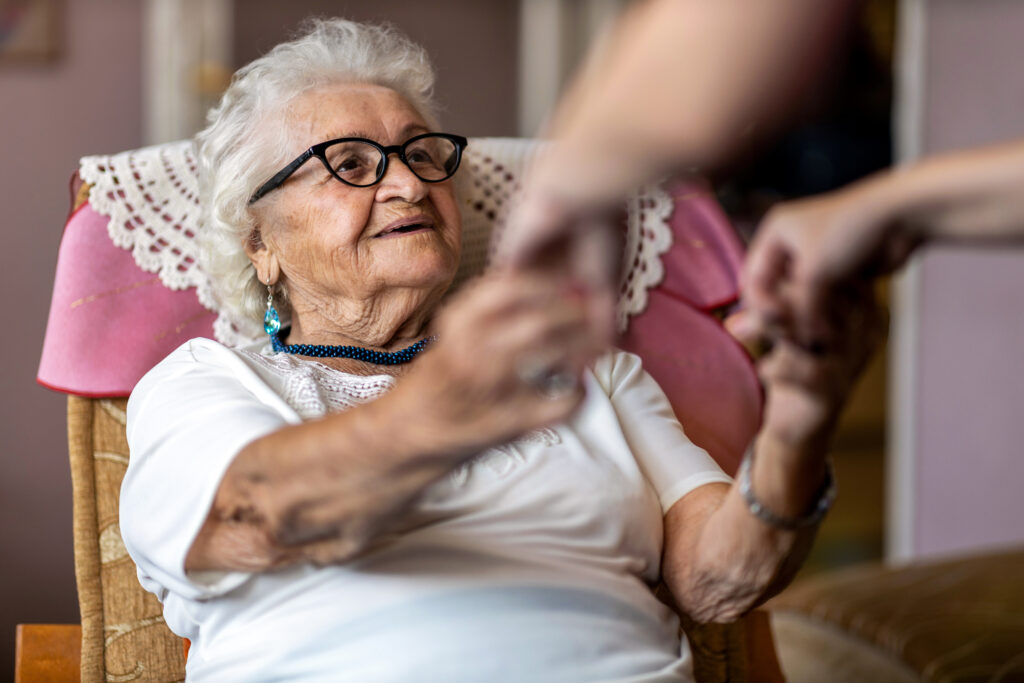Illinois Home Care: Common Terms, How to pay for Home Care, Licensing and Questions to ask
In the state of Illinois, the city of Chicago represents some of America’s iconic most iconic culture and excellent food. One of the most desirable aspects of Illinois is the fact that the state has 19 of America’s safest cities. Seniors and retirees, families and young people looking to find a comfortable new home love Illinois. Illinois’ beautiful 26 miles of salt-free coastline invites swimming and quality beach time for families and anyone looking to enjoy some leisure. The growing number of aging adults in Illinois is nearly 16% of the state’s overall population. And as the number of residents aged 65 years and older continues to grow, it is common that some may require care at some point. Most of the time, when people think of senior care the first thing they envision is a nursing home. This couldn’t be further from the truth: There are many different types and levels of care for our population of people 65 and older. Typically, people prefer to age in place as long as possible, rather than move into a senior living community – but the challenges of aging may cause living at home to become increasingly difficult. The focus of Illinois home care is to keep people healthy and safe.
There are several notable cities in Illinois where residents may receive excellent healthcare: Chicago, Peoria, Springfield, Champaign, Rockford, Naperville, Belleville, among many others.

- Illinois Home Care: Common Terms, How to pay for Home Care, Licensing and Questions to ask
- What is home care in Illinois?
- How do you know it may be time for Home Care?
- What Assistance do In-Home Care Aides Provide?
- Laws and regulations for home care in Illinois
- How much does home care cost in Illinois?
- What are the different Home care options?
- Questions and inquiries about home care
- Resources and Links – Illinois
- Resources and Links – Illinois
- Search other areas for Home Care
What is home care in Illinois?
In Illinois, home Care (or In home Care) is suited for seniors who may only require some basic assistance at home. Care plans can be customized for each individual. The home aides may support with activities of daily living (ADLs), which include medication reminders, assistance with bathing and eating. Home Care may be an excellent care options for family members if they must leave town or just need a break from caring for their loved one. The Home Care aides bring a sense of personalization, providing companionship and socialization, a sense of connection.
Home care and aging in place
In home care services include assistance with activities of daily living (ADLs). These in-home aides may assist with personal care and monitoring like they would receive in a long-term care community. All while they remain in the comfort of their own home.
How do you know it may be time for Home Care?
What are the signs to look for?
Have you noticed your loved one is spending less and less time managing their hygiene or personal appearance. They may stop brushing their teeth or let their facial hair grow in an unkempt fashion when they didn’t before. Are they going longer periods of time in the same clothing, or neglecting relatively scheduled eating habits? Grooming and hygiene live under the umbrella of ADLs, and as such a Personal Care Assistant may help with these tasks.
Is your loved one forgetting things more frequently? Typically, people forget things sometimes, but if you notice they are forgetting simple tasks they normally perform regularly, this may be a a sign that assistance is necessary.
It is not uncommon for elderly adults to experience trouble walking, getting up from a seated position or need help getting in and out of bed. Signs like this can be dangerous. The risk of a fall increases as mobility declines. The aide of a home care caregiver may assist with moving around the house safely.
Did you notice your loved one’s home is in disarray? Have they usually shown signs of tidiness or regular cleanliness, and now the home is disheveled and dirty. In Home Aides may assist in normal household maintenance like dusting and sweeping, cleaning the kitchen or doing laundry.
What Assistance do In-Home Care Aides Provide?
Home Care Aides provide a variety of non-medical services and assistance. Depending on the individuals condition, elderly adults may require different types of care.
Services included in home care:
- Companionship
- Socialization
- Cognitive stimulation
- Medication reminders
- Grocery shopping
- Transportation
- Respite for family caregivers

Often times, people think of nursing homes or retirement homes as the only places for senior care. As we’ve discussed earlier, there are multiple care options. And even within home care, there are levels of care suited for an individuals needs. The specific services offered in home care will vary state by state.
What are the different Home care options?
The various care services and options
Personal Care Assistant
- Companionship as well as assistance with activities of daily living, (non-medical personal care) toileting, dressing, grooming, and bathing.
- They can help with grocery shopping and meal preparation.
- A personal care assistant can help with family difficulties. If a family caregiver must leave town or be away from the home overnight the caretaker can stay with the individual and monitor and assist as needed.
- If a spouse is too heavy, a personal assistant can be a great asset in helping the individual move without risk of injury.
- These care assistants cannot perform any medical care.
Companion Care
- These companions spend time with older adults. Providing companionship is especially relevant for people who live alone, or do not leave the house due to cognitive impairments or frailty.
- These companions are there to look after the person, keep a watchful eye, act as an extension of the person to help with mobility and general physic functions.
- They may drive the person to appointments, prepare light meals and snacks. They may even play games or read and listen to music together.
- Companion care is a great way to bring social interaction and assistance to a person who may otherwise spend long periods of time alone.


Laws and regulations for home care in Illinois
Licensing
All home care agencies serving elderly adults must be licensed by The Health Care Facilities and Programs division of the Illinois Department of Public Health. The department conducts any inspections and investigations to ensure all agencies are in compliance with state regulations.
Staffing
All potential staff must undergo a criminal background check. Upon hiring they must receive and evaluation and then an additional 8 hours of training every 12 months while employed.
Grievances
Any and all suspected abuse in home care may be made to the Illinois Protective Services Hotline.
How much does home care cost in Illinois?
The average monthly cost of in home care in Illinois is above the national average. A month of in home care in Illinois is $5,350. The national average is $5,000 per month. Illinois is near the higher end in terms of the monthly cost for in home care in the midwest region of the United States.
- National average cost of home care per month: $5,000
- Illinois: $5,350
- Wisconsin: $5,550
- Iowa: $5,550
- Indiana: $4,765
- Missouri:$4,765
The cost of non-medial home care in Illinois will vary by city. Danville is exponentially higher than the rest of the state at nearly $8,825 per month. This is somewhat of an outlier.
- Chicago: $5,675
- Peoria: $5,075
- Springfield: $5,100
- Carbondale: $4,600

Questions and inquiries about home care
Agency Information
- Is the agency RN operated?
- Is the agency a franchise or locally owned and operated?
- Is the agency licensed by WA State Department of Health?
- Is the agency licensed for both home care and home health?
- Does the agency have liability insurance?
- Can the agency respond to you 24/7?
Caregiver Information
- Are employees licensed, bonded & insured? Or are they independent contractors?
- Does the agency test skills, conduct behavioral interviews and verify caregiver credentials?
- Are caregivers required to have current certifications for First Aid, CPR, and TB?
- Are caregivers provided continuing education/training?
- Can authorized individuals monitor care and make requests online in real time?
- Does the agency offer caregiver replacement when the “fit” may not be right?
Documentation and Supervision
- Does an RN/MSW/Care Manager conduct a free home care assessment?
- Does an RN/MSW/Care Manager create a home care plan?
- Does an RN/MSW/Care Manager supervise the caregivers?
- Do caregivers receive client orientation before arriving at a client’s home?
Policies and Cost
- Can services be cancelled with a 4-hour notification?
- Does the agency offer flexible scheduling, custom care plans, and a continuum of care?
- Does the agency have weekly or monthly minimums?
- What is the hourly minimum per shift?
- Does the agency offer home care discounts?
- What is the required deposit?
- Will the agency accept long-term care insurance?
Resources and Links – Illinois
Chicago Department of Family and Support Services DFSS Senior Services is designated through the Older Americans Act, and by the Ilinois Department on Aging, as the Area Agency on Aging for the city of Chicago and provides a range of services that allow older adults to remain healthy, safe and independent.
Illinois Department on Aging Area Agencies have the primary task of planning and coordinating services and programs for older people in their respective areas. The Area Agencies receive funding from the Department based on a formula which takes into consideration the number of older citizens and minorities in that area, as well as the number living in poverty, in rural areas, and alone.
AgeOptions As the Area Agency on Aging of suburban Cook County, Illinois, we advocate, plan, coordinate and fund services for older adults. Together with a network of community-based senior service organizations, we connect residents with vital services such as information and assistance, community dining programs and home-delivered meals, housekeeping help, employment services, access to benefits and support for family caregivers.
Adult Protective Services Hotline To report suspected abuse, exploitation or neglect of an older person, age 60 and above or a person aged 18-59 with a disability, call the statewide 24-hour Adult Protective Services Hotline
Eldercare Locator This is a great resource to search for specific care in specific counties and cities. This database is a nationwide resource that connects older Americans and their caregivers with trustworthy local support resources. Connect with services such as meals, home care or transportation, or a caregiver education or respite from caregiving responsibilities. The Eldercare Locator is a public service of the Administration on Aging (AoA), an agency of the U.S. Administration for Community Living.
Medicare provides a search feature to find & compare providers near you, most senior housing and care providers are included on CareAvailability.com. Find & compare plans in your area. Determine if you qualify for premium savings
Medicaid offers information on how to apply for Medicaid, eligibility criteria, links to local state offices, and additional resources
The Alzheimer’s Association is the leading voluntary health organization in Alzheimer’s care, support, and research. Whether you are living with Alzheimer’s or caring for someone with the disease, information and resources are available.
Resources and Links – Illinois
Chicago Department of Family and Support Services DFSS Senior Services is designated through the Older Americans Act, and by the Ilinois Department on Aging, as the Area Agency on Aging for the city of Chicago and provides a range of services that allow older adults to remain healthy, safe and independent.
Illinois Department on Aging Area Agencies have the primary task of planning and coordinating services and programs for older people in their respective areas. The Area Agencies receive funding from the Department based on a formula which takes into consideration the number of older citizens and minorities in that area, as well as the number living in poverty, in rural areas, and alone.
AgeOptions As the Area Agency on Aging of suburban Cook County, Illinois, we advocate, plan, coordinate and fund services for older adults. Together with a network of community-based senior service organizations, we connect residents with vital services such as information and assistance, community dining programs and home-delivered meals, housekeeping help, employment services, access to benefits and support for family caregivers.
Adult Protective Services Hotline To report suspected abuse, exploitation or neglect of an older person, age 60 and above or a person aged 18-59 with a disability, call the statewide 24-hour Adult Protective Services Hotline
Eldercare Locator This is a great resource to search for specific care in specific counties and cities. This database is a nationwide resource that connects older Americans and their caregivers with trustworthy local support resources. Connect with services such as meals, home care or transportation, or a caregiver education or respite from caregiving responsibilities. The Eldercare Locator is a public service of the Administration on Aging (AoA), an agency of the U.S. Administration for Community Living.
Medicare provides a search feature to find & compare providers near you, most senior housing and care providers are included on CareAvailability.com. Find & compare plans in your area. Determine if you qualify for premium savings
Medicaid offers information on how to apply for Medicaid, eligibility criteria, links to local state offices, and additional resources
The Alzheimer’s Association is the leading voluntary health organization in Alzheimer’s care, support, and research. Whether you are living with Alzheimer’s or caring for someone with the disease, information and resources are available.
Search other areas for Home Care
Not finding what you’re looking for? Take a look below.
